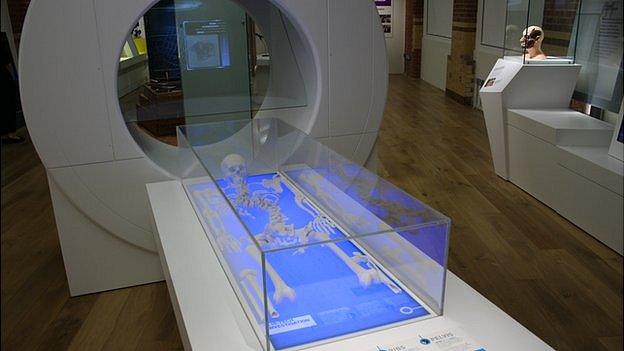Richard III: Visitor centre misses target by 20%
- Published
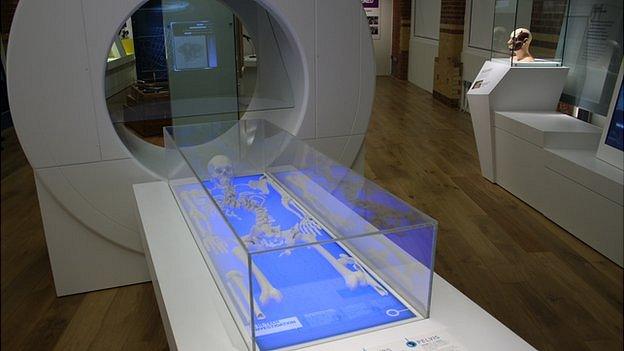
The visitors centre holds a copy of Richard III's skeleton and a reconstruction of his face
The £4m visitor centre set up over Richard III's grave in Leicester has missed its first year visitor target by nearly 20%.
The notorious king's remains were found beneath a city car park in 2012 and reburied in its cathedral in March.
Marking its first anniversary, bosses revealed it had welcomed 81,600 visitors, against a target of 100,000.
But they said such statistics were only "part of the story" and the attraction was building a quality reputation.
The centre, housed in a Victorian former school, was extended to cover the actual location of the grave.
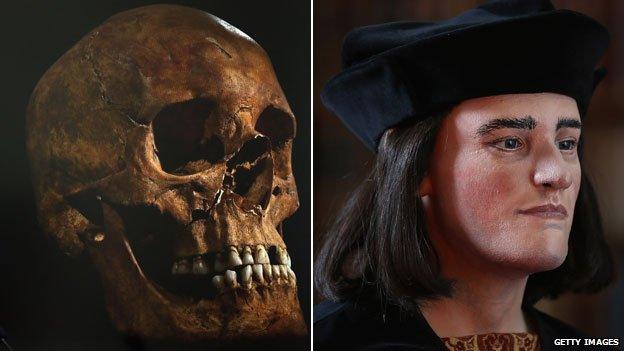
Richard III's remains were found under a car park in Leicester
It contains two floors, one explaining Richard's life, reign and death at the battle of Bosworth in 1485, the other detailing his reputation and rediscovery.
Build costs were covered by the city council before the centre was handed to a charitable trust to run.
According to the trust's figures, it had 81,627 visitors, with a further 3,000 attending corporate events.
Iain Gordon, visitor centre director, played down the significance of the results.
"It was an ambitious target," he said. "It was difficult to know how many would turn up because it is such a unique attraction."
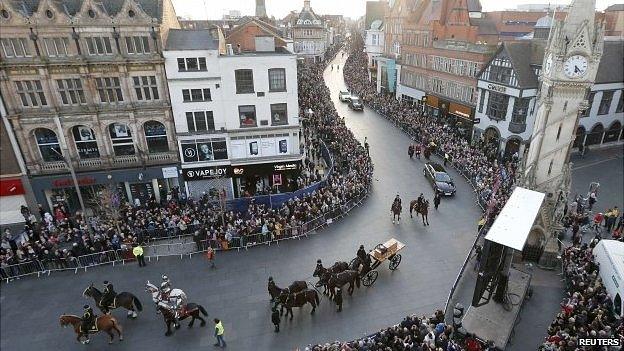
Leicester gained global attention for the discovery of Richard's remains and his subsequent reburial
Mr Gordon accepted the centre would never get such publicity as it did during its opening and Richard's reburial but insisted there were other factors in its favour.
"We are building momentum. We are very pleased with the broad base of visitors coming - young and old, from Britain and abroad - and the positive feedback we are getting.
"School and group visits take time to build up, so I am very optimistic about the future.
"I think we would be looking to future numbers of about 70-80,000, which is more than sustainable."
- Published19 May 2015
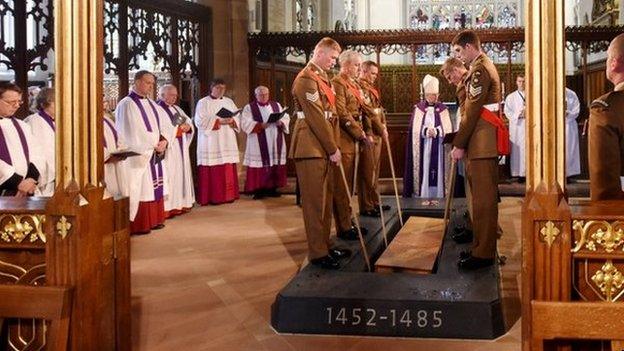
- Published22 July 2014
